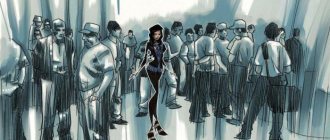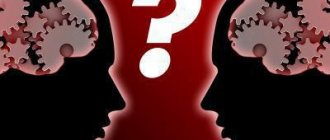Every day we meet dozens of people with different characters, problems, phobias and lifestyles. Among them, there is at least one percent with a serious personality disorder and forms of individualism. People who hate people are of the greatest interest. Today this issue is especially relevant, because any such deviation from the accepted norm can be harmless and dangerous. Each of these disorders in science is given specific definitions, signs of manifestation and causes are described. So what are people called who don't like people? Let's try to figure it out.
Sociopaths
A fairly common personality disorder, manifested in systematic violation of social norms, aggression towards people and the inability to build friendly relationships with them. Visually, a sociopath can be characterized as a frequently conflicted person who is unable to show empathy towards others. Simply put, these are people who hate people and do not strive to make new acquaintances. But they cannot be called unsociable. They show interest in others, but “throw off” any burden of obligations to them. At the same time, sociopaths have no sense of guilt. Sociopathy is classified as a dangerous disorder, since the patient, not getting what he wants, can be aggressive and even resort to violence. Sociopathy breaks the character and behavior of the patient. If left untreated, the disorder will become uncontrollable.
Experts do not have a consensus on the clear causes of sociopathy in humans. However, there are assumptions about congenital (hereditary) and acquired mental pathology. The latter is due to the conditions of development and personality formation (strict parents, excessive criticism and demands).
Causes of misanthropy
The reasons for misanthropy can be different. But we can distinguish two main factors that influence the formation of this feature.
The first factor is a difficult childhood.
From his earliest years, a person did not see anything kind, good, did not feel love. Usually these are children from disadvantaged families. Due to circumstances, a persistent negative attitude towards the world is formed. These people are sure that there is a catch everywhere and it cannot be any other way.
The second factor is a special sensitivity of character and a heightened sense of justice
The subtle mental organization of such individuals will strive for the ideal and be disappointed when they do not find it.
Also, sensitive people are rarely resistant to stress. A constant overabundance of communication with different people can negatively affect the individual. A striking example is the well-known phrase of the German poet Heinrich Heine: “ The more people I know, the more I like animals.
" Also, the cause of a predisposition to misanthropy may be internal complexes, low self-esteem, and lack of self-confidence.
Philanthropist - helping for profit or a character trait?
Misanthropes
You can often come across the question on forums: “What are people called who don’t like people?” And among the many answers, the term “misanthrope” slips through. Who are they and how to recognize misanthropes? Such people either have no friends or a very narrow circle of friends. They avoid noisy companies; misanthropes themselves call their desire for loneliness philosophy or individuality. Misanthropes are characterized by pessimism, mistrust, and excessive suspicion. The extreme form is enjoying hatred of people. But, despite the obvious alienation and unsociability, misanthropes are harmless. Among them, history knows talented creative personalities: A. Schopenhauer, J. Swift, A. Gordon.
A person usually comes to misanthropy when he is dissatisfied with his environment, communication with people, and their actions. This process is often accompanied by depression and a reshuffling of priorities.
Misanthrope and Introvert: what is their difference?
The misanthrope has contempt for humanity as a whole.
He experiences hostility and irritation at the sight of a fussy, noisy, crazy crowd of people, and does not want to follow the rules of society, generally accepted norms of behavior. The misanthrope does not digest humanity for a reason, he looks for reasons for hatred and finds them: weaknesses and vices, crimes and indifference, wars and violence, mistakes of authorities and the obedience of peoples. But for all his hatred of the human race, a misanthrope is capable of experiencing warm feelings for specific individuals. A misanthrope is a misanthrope, but he does not shy away from love and respect. However, his love extends to a very limited number of people. Typically, a misanthrope only contacts his family and a few reliable friends and tries not to make acquaintances.
Today, many young people call themselves misanthropes, apparently thinking that it sounds cool and modern. In fact, nowadays it is almost impossible to meet a true misanthrope. The vast majority of people who consider themselves misanthropes are actually introverts - individuals who are self-absorbed.
An introvert is a person who feels comfortable in his inner world, abstracted from society. He does not hate humanity at all, and this is his main difference from a misanthrope. An introvert, on the contrary, deeply respects and honors famous and talented personalities, admires the creations of their hands and minds, and is interested in historical figures and world heroes.
It’s just that in human society an introvert feels uncomfortable and depressed, and gets tired of being forced to communicate for a long time. He prefers to think, silently watch and listen, act rather than chat. An introvert is constantly focused, independent, does not play to the public, and does not waste time and energy.
As can be seen from the above, the difference between an introvert and a misanthrope is significant. Below are the main signs by which you can recognize a misanthrope and an introvert.
Xenophobes
Another form of human hostility is xenophobia. Unlike the previous ones, it is characterized by ideology. Xenophobes are not just people who hate people. Their hostility is associated with a specific characteristic: national, religious, racial. Experts believe that the roots of xenophobia are hidden in the biological theory of protective reflexes. When a person sees people with a different appearance, manners, character and behavior, at the biological level his instinct to preserve his species is triggered. It is he who prevents the formation of interracial and interethnic marriages. A similar phenomenon can be observed in the animal world. In society, xenophobia acquires a hostile, aggressive character when it becomes an idea. In the modern world, the concepts of “xenophobia”, “racism” and “nationalism” have become identical.
The main characteristics of an introvert
How can a person understand that he is not an ardent misanthrope, but just an introvert who has isolated himself from the world and loves to delve into himself?
The traits that characterize introverts are given below:
- The introvert is silent.
He doesn't communicate much, not because he hates people, but because he doesn't like meaningless chatter. An introvert only engages in conversations that make sense. He willingly discusses business issues with colleagues, solves family problems with relatives, talks with friends on topical topics, but gossip, gossip and empty tongue scratching are stupid. - An introvert does not pry into his soul, does not ask to be friends, does not try to cheer up others with chatter.
He is not shy, not distrustful, not fearful, he just needs a good reason to communicate. Don't wait for the introvert to speak first. He can remain silent for an eternity. An introvert is not a savage, not dumb: to communicate with him, you just need to contact him with a specific question. - Introverts like it when communication is built on ease and naturalness.
Ceremonies, polite addresses, intricate greetings and farewells, collective and family traditions are meaningless and unbearably boring. Because of this behavior, introverts often become outcasts in society. They are considered strange, rude, narrow-minded, “black sheep.” - Introverts are not activists.
They do not like to participate in public life, go out, do group work, or be in a crowd for a long time. Introverts have the ability to quickly absorb information, so they only need to be around people for a few minutes to gain information. Noisy and hectic activities are tiring. An introvert works alone and does it calmly and measuredly. - Introverts enjoy being alone, although they are not immune to boredom.
Building relationships with the opposite sex is usually a big challenge. Introverts do not like to waste time and energy on courtship and dating; they consider the candy-bouquet period tedious and tiring. They also take love and intimate life extremely seriously, persistently search for a soul mate, and are in no hurry to start a family. - Introverts are great individualists.
They have an original worldview, do not follow fashion, have little interest in world events, and do not delve into public life. Because they don't want to follow the crowd, introverts are often considered outcasts and weirdos. But it is precisely from such strange personalities that talented painters, musicians, philosophers, and scientists emerge. It is worth noting that mainly introverts can boast of a high IQ level. - Rest for an introvert consists of peace and quiet.
Participation in noisy parties and extreme events is unacceptable. Introverts do not catch adrenaline and do not need thrills. The best places to relax are wild nature, a museum, a park, a chair by the fireplace. If an introvert finds himself among bustle, noise, aggression, he tries to immediately leave the unpleasant place.
Learn more about what an introvert is.
Nationalists
Today there is rarely anyone who does not know what people are called who do not like people of a different nationality. Nationalism has gone through several stages in its history. Each of them was either unifying or aggressive in nature. Today, nationalism is part of state policy that protects the interests of its people through constitutional means. However, this type of xenophobia has many faces. History remembers many examples of aggressive nationalism (from Ancient Rome to the present day). There are people who hate people of another nation, but show their intolerance quite peacefully. When this becomes a mass phenomenon, it is worth talking about extremism.
Philip Mainlander: a person is good only if he is not there
On a par with Jonathan Swift and other enemies of the human race was the 19th century German thinker Philipp Mainländer, one of the representatives of the pessimistic movement. In his Philosophy of Liberation, dated about 1870, he writes: “I would destroy all fleeting impulses that can divert a person from seeking the quiet night of death.”
“Liberation”, which is included in the title of Mainländer’s treatise, can only consist in the fact that the world, and with it human suffering, will cease to exist.
A pessimistic philosopher dreams of this, because life is suffering, God is dead, and the best outcome is apocalypse:
“Everything that exists in the world is generated by evil: the whole world, the state of humanity, the laws and the natural order of things are all just evil.”
The only good thing is what doesn't exist. The same applies to the “crown of creation.” Mainlander distances himself from humanity not in fantastic travels, like Swift's Gulliver, but in his own consciousness, based on the fact that he, the world and people do not exist.
Racists
Since the times of colonialism, people who do not like people of different skin color have been called racists. Of course, this phenomenon is much broader. It is based on spiritual, intellectual and physical inequalities. Racists clearly divide society into superior and inferior races and seek to consolidate a certain hierarchy. All this turns into a beautiful ideology for the structure of the world. However, experts believe that racism is a form of phobia towards “strangers”.
Racists can be roughly divided into two groups. The first group includes people who hate people of another race and in every possible way deny any contact with them, strive to dominate them or eradicate them (extreme). Another group of racists behaves tolerantly towards other races. But he categorically denies close relationships with them (marriage, kinship).
Animal lovers
“The more I get to know people, the more I like dogs,” the famous misanthrope Schopenhauer once wrote. But not all misanthropes love animals. What do you call people who don't like people but love animals? The definition of “animal lover” is usually used here. Such people have a dozen cats, dogs or other pets at home. These are dedicated volunteers who protect the rights and lives of animals. But no matter how strong their love for the animal world is, they try to avoid the company of people. Moreover, they feel hostility.
The reasons for animal love are various. Everyone has their own story: depression, personal philosophy, disappointment in people, betrayal, betrayal, old age, etc. Experts say that not all animal lovers are misanthropes. Many of them have families and like-minded friends. This means they are capable of loving people.
Tolerance is the path to harmony
People who hate people are called different things. Since their hostility has different shades of manifestation. To summarize, we can draw one clear and correct conclusion: any hostility towards people is unnatural for a person. And therefore it leads to aggression, destruction of man and the world.
According to statistics, up to 3 percent of the world's population suffer from such disorders. And these are millions! Of these, only a few turn to specialists for help. The rest consider it a style or philosophy of life, their own ideology, politics. To resolve the situation, you need to understand the reason and try to find ways to solve it. And act! As a rule, the first shoots of human hostility usually take root in childhood. Therefore, it is very important to instill in children a sense of tolerance and equality between people, regardless of their gender, social status, nationality and race.










